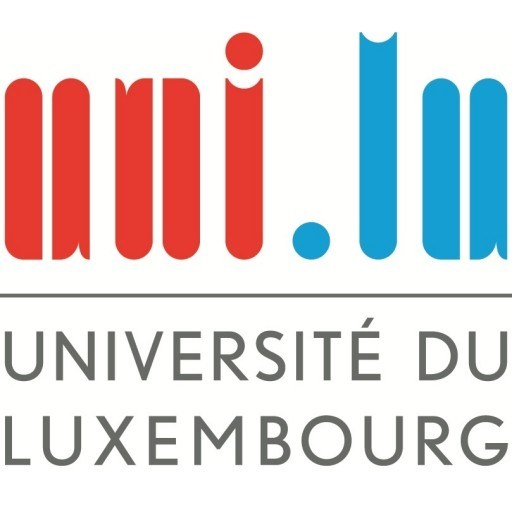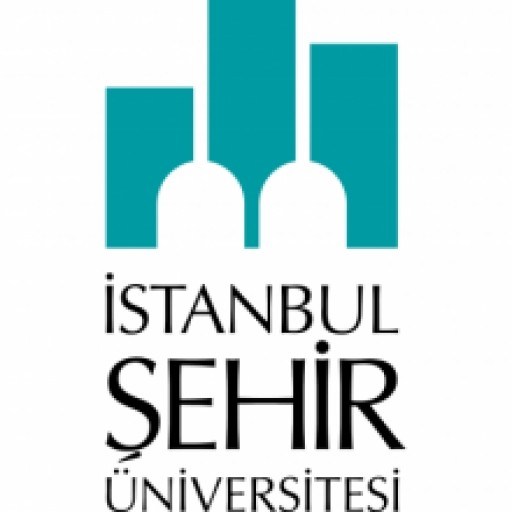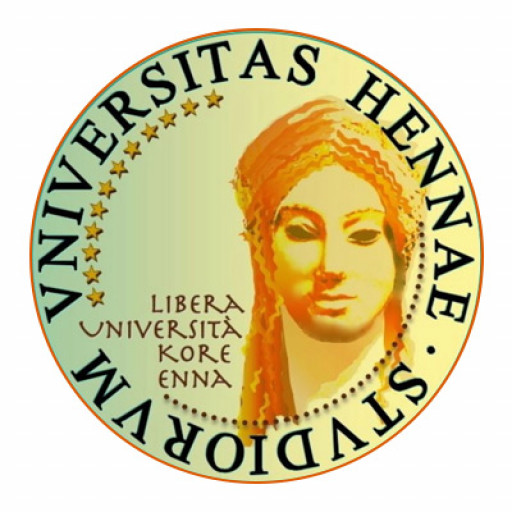Photos of university / #uni.lu
The Master of Science in Information and Computer Sciences at the University of Luxembourg offers a comprehensive and rigorous curriculum designed to prepare students for advanced careers in the rapidly evolving fields of information technology and computer science. This program combines theoretical foundations with practical skills, ensuring graduates are well-equipped to tackle complex challenges across various industries, including software development, data analysis, cybersecurity, artificial intelligence, and more. Participants have the opportunity to engage with cutting-edge research and innovative projects, fostering critical thinking and problem-solving abilities that are essential in today's digital world. The program features a diverse range of modules tailored to current market demands, emphasizing areas such as algorithms, machine learning, data management, and software engineering. Students can choose from elective courses to tailor their studies to their specific interests and career goals. The curriculum is delivered by renowned faculty members who are active researchers and industry experts, providing students with valuable insights and mentorship. The university's strong links with local and international technological companies also facilitate internships, collaborative projects, and networking opportunities, enhancing employability upon graduation. The program is designed for students holding a bachelor's degree in computer science, information technology, or a related discipline, and aims to develop both theoretical knowledge and practical competencies. Graduates of this master's programme are prepared to contribute effectively to innovation and technological development in various sectors, including finance, healthcare, telecommunications, and public administration. The University of Luxembourg's MSc in Information and Computer Sciences is committed to fostering a multicultural learning environment, encouraging collaboration among students from diverse backgrounds. This program not only equips students with advanced technical skills but also emphasizes the importance of ethical considerations and responsible innovation in the digital age. Enrollment is open to applicants worldwide, and the university provides comprehensive support throughout the admission process. Upon completion, students receive a recognized master's degree that signifies their expertise and readiness to excel in dynamic and competitive technological landscapes.
The Master of Science in Information and Computer Sciences at the University of Luxembourg offers a comprehensive and rigorous curriculum designed to equip students with advanced knowledge and practical skills in the fields of computing and information technology. The program is tailored for individuals aiming to become experts capable of addressing complex challenges in the rapidly evolving digital landscape. Students will explore a wide array of topics, including algorithms, data management, software engineering, artificial intelligence, machine learning, cybersecurity, and network systems. The curriculum emphasizes both theoretical foundations and practical applications, ensuring that graduates are well-prepared for careers in research, industry, or entrepreneurship.
Students begin the program by acquiring a solid understanding of core computer science principles through courses on programming languages, data structures, and systems analysis. As they progress, they have the opportunity to specialize in areas such as data science, AI and machine learning, software engineering, or cybersecurity, depending on their interests and career goals. The program also encourages interdisciplinary learning by integrating concepts from mathematics, statistics, and business to provide a holistic understanding of the challenges faced in modern information technologies.
A key feature of the program is its focus on research and innovation. Students undertake individual or group projects, participate in seminars and workshops, and have access to the university's cutting-edge laboratories and research facilities. The program also promotes collaboration with industry partners, offering internships and practical training to ensure students gain real-world experience. Graduates will be well-equipped with not only technical expertise but also problem-solving, critical thinking, and teamwork skills necessary for leadership roles in various sectors.
Graduates of this MSc program are prepared for diverse career opportunities such as software developers, data analysts, system analysts, cybersecurity specialists, or pursuing doctoral studies. The University of Luxembourg's multidisciplinary environment and international faculty further enrich the learning experience, fostering creativity and innovation. The program underscores the importance of lifelong learning and adaptability, essential qualities in the fast-changing world of technology. Overall, the MSc in Information and Computer Sciences aims to develop highly qualified professionals who will contribute to the digital transformation of society, economy, and industry on a global scale.
The Master in Information and Computer Sciences at the University of Luxembourg requires applicants to hold a Bachelor's degree or equivalent in Computer Science, Information Technology, or a related field from an accredited institution. Applicants must demonstrate a solid foundation in programming, algorithms, data structures, computer architecture, and mathematics, including calculus and linear algebra. Proficiency in English is mandatory, with accepted tests such as TOEFL or IELTS to prove language competence. The programme emphasizes both theoretical and practical aspects of computing, and prospective students should have prior experience with software development, systems analysis, and databases.
Applicants are expected to submit a completed online application form, a detailed CV, copies of academic transcripts, and a motivation letter explaining their interest in the programme and career goals. In some cases, relevant professional experience in computing or related fields may be considered as equivalent to formal academic qualifications. The admissions committee values diversity in academic backgrounds but looks for candidates with a strong academic record and motivation for advanced study in information and computer sciences.
The programme is structured to offer comprehensive coursework in areas such as software engineering, data management, cybersecurity, machine learning, and data science. Students will engage in project-based learning, ranging from individual assignments to group projects, allowing them to apply theoretical concepts in practical settings. As part of their studies, students may participate in internships or collaborative research projects with industry partners, providing valuable real-world experience.
In addition to coursework, students must complete a master’s thesis that involves original research under faculty supervision. The thesis typically focuses on innovative solutions to current challenges in information technology or computer science. To graduate, students must also fulfill attendance requirements, pass all examinations, and successfully defend their thesis. The programme aims to prepare graduates for careers in research, industry, or entrepreneurship, equipping them with advanced technical skills, problem-solving abilities, and a global perspective on computing advancements.
The Master of Science in Information and Computer Sciences at the University of Luxembourg offers a range of financing options to support students throughout their studies. Tuition fees are set in accordance with the university’s policies, which are designed to be accessible to a diverse student body. For EU and international students, the annual tuition fee is generally around €1,000, though specific amounts may vary depending on the year's regulations and the student's residence status. The university provides detailed information on tuition fees and potential additional costs on its official website.
Students are encouraged to explore scholarships and financial aid opportunities offered by the university. The University of Luxembourg offers several scholarship programs, including merit-based scholarships for outstanding students, need-based financial aid, and specific scholarships for students from certain regions or backgrounds. Eligibility criteria for these scholarships typically include academic performance, financial need, and other criteria determined by the scholarship providers. Application procedures are usually outlined on the university's scholarship webpage, and students are advised to apply early to maximize their chances of receiving financial support.
Apart from university-specific funding, students can also seek external scholarships and grants from government agencies, international organizations, and private foundations. Luxembourg’s national scholarship programs, such as those offered by the Ministry of Higher Education, provide financial support for both local and international students. Additionally, some students may qualify for loans or sponsorships through their home countries or international educational funds.
Part-time work opportunities are also available to students during their studies, providing a way to supplement their income. The university's location in Luxembourg, a country known for its multilingual and multicultural environment, offers students access to a vibrant job market, particularly in information technology, finance, and consulting sectors, which can provide relevant work experience alongside studies.
Furthermore, the university's Career Center offers guidance on internships and employment opportunities, helping students to secure part-time jobs and internships in Luxembourg and beyond. These experiences not only support students financially but also enhance their professional skills and employability after graduation.
In summary, financing a Master's in Information and Computer Sciences at the University of Luxembourg can be achieved through a combination of relatively low tuition fees, scholarships, external grants, part-time work, and internships. The university is committed to making higher education accessible and affordable, and students are encouraged to explore all available options early in their academic journey.
The Master of Science in Information and Computer Sciences at the University of Luxembourg offers students a comprehensive and advanced education in the rapidly evolving fields of information technology and computer science. This program is designed to equip graduates with in-depth theoretical knowledge combined with practical skills necessary to address complex challenges in computing, data management, software development, and cybersecurity. The curriculum covers a broad spectrum of topics, including algorithms, data structures, programming languages, systems architecture, artificial intelligence, machine learning, data analytics, and network security.
Students benefit from the university's strong emphasis on research and innovation, working alongside experienced faculty members who are active researchers in their respective fields. The program encourages critical thinking, problem-solving, and collaborative work, preparing graduates for careers in academia, research institutions, or industry sectors such as finance, healthcare, telecommunications, and technology enterprises. The university's state-of-the-art laboratories and computing facilities provide a conducive environment for hands-on learning and experimentation.
Internationally oriented, the program attracts students from various countries, fostering a diverse academic community. Language of instruction is primarily English, reflecting the global nature of the field. The program also offers various specialization options and elective courses, allowing students to tailor their studies to specific interests or career goals. Some students may have opportunities for internships or industry projects that enhance practical experience and employability.
Graduates of this master's program are well-positioned to contribute to technological innovation and digital transformation initiatives across multiple domains. The degree opens doors to PhD studies for those interested in research careers or to professional roles requiring advanced knowledge in information systems, software engineering, or data science. Overall, the Master in Information and Computer Sciences at the University of Luxembourg provides a solid foundation for future leaders and innovators in the digital economy.








